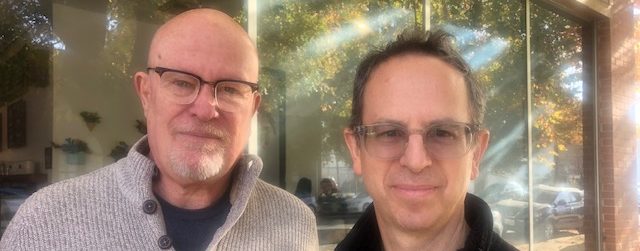California doctors need to know more about the effects
By Bob Erlenbusch and Drew Factor
“Adverse childhood experiences are the single greatest unaddressed public health threat facing our nation today,” declared Robert Block, former president of the American Academy of Pediatrics.
Yet, according to a study conducted in the mid-1990s by the Centers for Disease Control and Prevention and Kaiser Permanente, adverse childhood experiences are common, and the resulting health and behavioral health issues span a lifetime.
What are adverse childhood experiences?
The study identified three types: abuse, neglect and household dysfunction. Since this study, the list has been expanded to include living in unsafe neighborhoods, food insecurity, homelessness, bullying, income insecurity, discrimination and racism.
We are proposing legislation to require education on childhood trauma in all California medical, dental and nursing programs. We also propose that all major medical groups mandate similar training of their administrators, staff and clinicians. And we call upon elected officials and their staffs to raise their awareness of the pervasive effects of childhood trauma, especially in the crisis areas of homelessness and poverty.
The recent CDC report found that at least 60% of Americans had at least one adverse experience, while 16% had four or more different types. Ethnic minorities are most at risk: 61% of black children, 51% of Hispanics, 40% of white children and 23% of Asian children experienced at least one traumatic experience.
The physical and mental health toll of these traumatic experiences is staggering. People who experience trauma are 15 times more likely to commit suicide, four times more likely to become an alcoholic or drug abuser and 2.5 times more likely to smoke. In addition to these high-risk behaviors, childhood trauma is highly correlated with health issues including depression, heart disease, cancer, autoimmune disorders, chronic lung disease, liver disease and shortened life span.

According to the National Council for Behavioral Health, trauma informed care is “the expectation, not the exception in behavioral health systems.” Yet most American physicians are unaware of these findings and do not assess their patients for childhood trauma. Even for clinicians who are aware, there are many reasons why these issues are not routinely addressed in primary care settings, including lack of time, tools or training; misconceptions and discomfort; lack of administrative support; or the fear that they “just don’t want to open Pandora’s box.”
What doctors do not realize is that a medical setting is full of potential “triggers” for people with traumatic experiences. Invasive procedures, removal of clothing, physical touch, power dynamics, the gender of the healthcare provider and loss of privacy may be distressing for these patients and keep them from seeking medical services.
Trauma informed care must be a universal precaution, just like an infectious diseases. It should be standard practice for medical professionals to screen and assess for childhood trauma in a safe environment. It is critical that primary and behavioral health systems have ways to inform each other about a person’s trauma and its effect on their mental health and physical well-being.
It is time that the major hospitals in our communities take a multidisciplinary approach to improve health care. California has led the way with many great initiatives, and health care should be no exception.





Be the first to comment on "Essay: Childhood trauma lasts a lifetime"